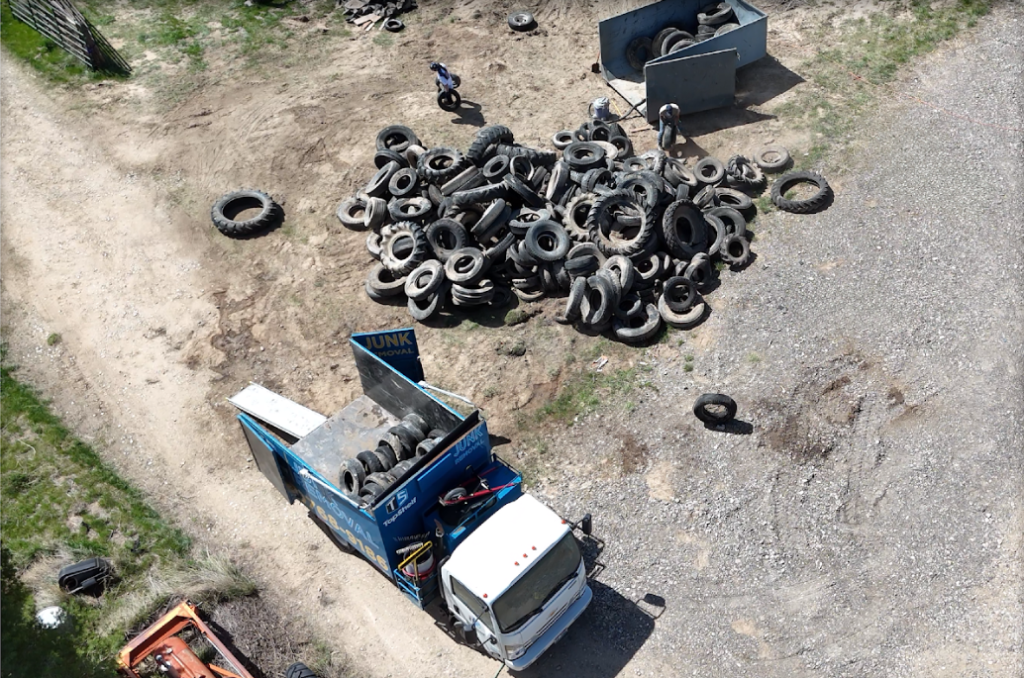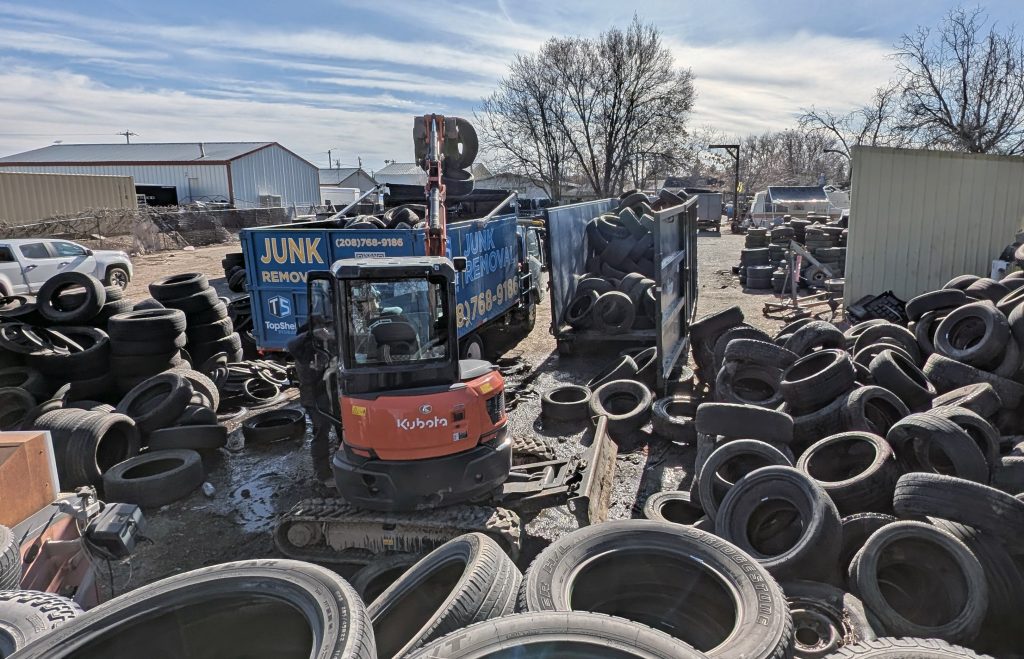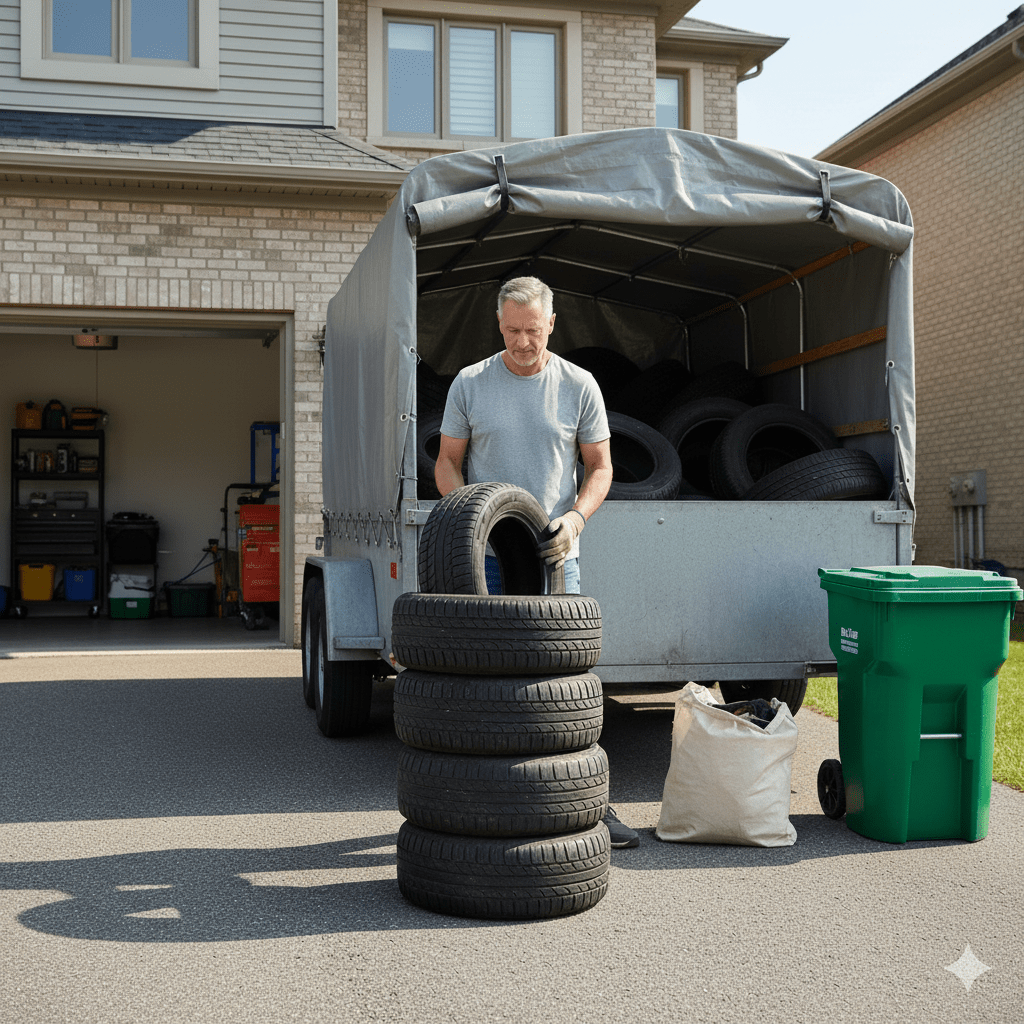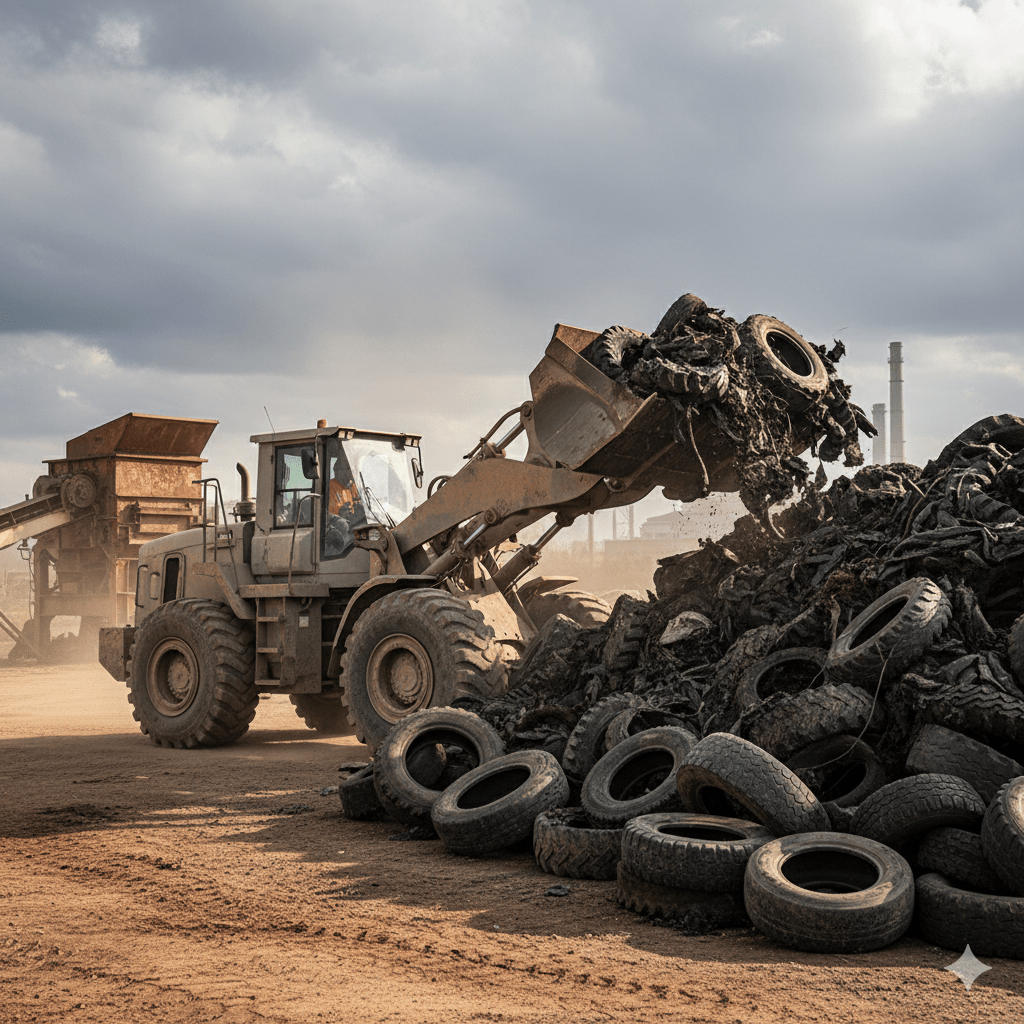There’s junk you can toss without a second thought, and then there’s the spicy stuff—the cans, tanks, tubes, and mystery liquids that make landfills twitch and regulators sweat. This guide cuts through the panic and tells you what most haulers will take (with strings attached), what they won’t touch, and why the bill sometimes looks like it swallowed a small yacht.
Can Take with Extra Fee: Paint, Oil, Freon, Tires, Car Battery, Propane Tank, carcasses
Yes, many haulers will accept these—with a hazard surcharge and only under the right conditions.
- Paint (latex & oil-based): Keep lids on, buckets upright, labels intact. Latex often routes to reuse/reblend programs; oil-based goes to hazardous processing. Expect “paint handling” on the invoice.
- Oil & filters: Box filters; cap containers. DIY hazardous waste oil disposal never means “down the drain.” It means closed containers headed to a licensed receiver.
- Freon/AC units: Refrigerants require certified recovery. You’re paying for the tech, the capture machine, and the paperwork saying it didn’t vent into the sky.
- Tires: Landfills usually ban them whole. Fees cover de-beading, shredding, and recycling rubber.
- Batteries (lead-acid/AGM): Car battery disposal is almost always recyclable, but still hazardous. Chain of custody matters; ask for a receipt.
- Propane Cylinders: Grill-size, camping-size (1lb propane tank disposal, mini propane tank disposal), even the green ones—take them valve-on, upright, and never punctured. Fees pay for depressurization/testing.
- Carcasses (allowed in some jurisdictions): Call first. You’ll be charged for PPE, bio-odor control, double-bagging, and compliant transfer.
Rule of thumb: sealed, labeled, upright, and disclosed gets a “yes (with fee)” far more often than a leaking mystery can.
Can’t Take: Asbestos, Poisons, Weapons
Some items are a hard “no,” and pretending otherwise invites fines or a visit from people with badges.
- Asbestos: Requires abatement crews, containment, manifests, and a licensed landfill cell. No exceptions.
- Poisons (certain pesticides/chemical reagents): If the label screams skull-and-bones, it’s probably headed to a specialized hazardous facility via scheduled hazardous materials removal—not a standard truck.
- Weapons & Ammunition: Absolutely not. Use police department guidance or certified take-back programs only.
When in doubt, ask your hauler before pickup. Surprises at the curb become surcharges—or refusals.

Factors Influencing Disposal Costs for Hazardous Items
Why does Grandma’s garage cleanout cost as much as a weekend getaway? Because hazard math stacks up:
- Risk profile: Flammables, corrosives, pressurized gas—higher risk, higher fee.
- Packaging & condition: Factory-sealed and labeled beats sticky, unlabeled jars every time.
- Quantity & sorting: Mixed boxes of “everything” cost more than tidy, itemized streams.
- Transport class: Some items trigger DOT hazmat rules—special placards, trained drivers, manifests.
- End-point fees: Licensed facilities charge for acceptance, treatment, and destruction. Your line item reflects that.
- Documentation overhead: Proof of hazardous materials waste disposal (and not dumping) takes admin time, which you’ll see in the estimate.
Want to save? Consolidate compatible items, keep original labels, and disclose exactly what you have.
Special Permits Required for Disposing Certain Hazardous Materials
Not all hazards are created equal; some require extra paperwork before anyone lifts a lid.
- Refrigerants (Freon): Recovery must be performed by EPA-certified technicians; haulers need documentation.
- Bulk oils/solvents: Volume thresholds can trigger generator IDs, transport manifests, and specialized hazardous materials disposal routes.
- Large propane inventories: Big cylinders (or lots of small ones) may need a dedicated manifest and scheduled evacuation.
- Controlled toxins/poisons: Expect pre-approval, identity verification, and a strict chain of custody.
- Commercial generators: If you’re a business, “household exemption” doesn’t apply—welcome to commercial hazardous waste disposal rules.
No permit? No pickup. Get the paperwork squared away first to avoid rescheduling fees.
Recycling Programs for Difficult Hazardous Materials
Plenty of “problem” items have legit second lives—use them to cut costs and landfill guilt.
- Paint: Community reuse and reblend programs (often found via paint disposal services, paint waste disposal). Latex can be recycled; oil-based goes through hazardous streams.
- Batteries: Auto stores and recyclers pay (or at least credit) for used car battery disposal; hybrids and EV packs need certified electric car battery disposal channels.
- Propane Tanks: Exchange programs (grill-size) and specialty take-backs for camp cylinders (camping propane tank disposal, propane cylinder disposal) keep metal in circulation.
- Oil & Filters: Many parts stores accept used oil; filters go to metal recovery after draining.
- Appliances with refrigerant: Certified recovery, then scrap metal recycling; request your recovery certificate.
Search locally (e.g., paint and chemical disposal, propane tank disposal). The right outlet lowers risk and your final bill.
Quick Reality Check (So You Don’t Get Burned)
- Don’t mix chemicals. Ever. The “what could go wrong?” list is too long.
- Don’t vent tanks. Illegal, dangerous, and more expensive when you get caught.
- Don’t hide hazards. Crews will find them, and concealment fees are a thing.
- Do label everything. “Unknown” equals “expensive.”
- Do call ahead. A 60-second phone screen can save hundreds and a second trip.






